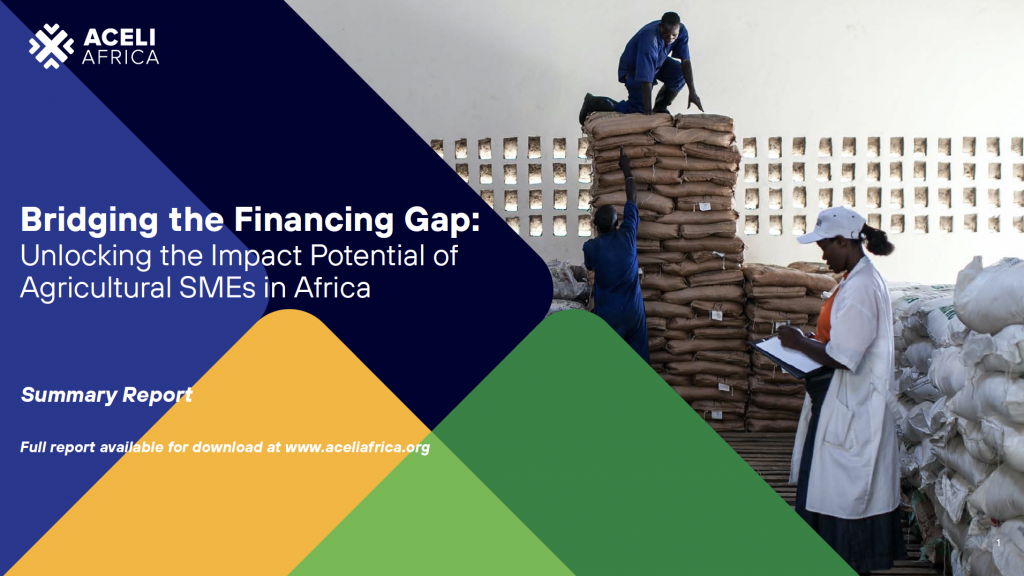At a sector convening in December 2017, lending practitioners discussed barriers to growing the finance market for agricultural SMEs: namely, the mismatch between the risk-return hurdle of capital providers and the addressable demand among businesses. Stakeholders in attendance pushed lenders to put hard evidence behind their anecdotal experiences.
This report synthesizes our journey over the past two and half years: first to distill the economics of agri-SME lending across a diverse set of lenders and then to design solutions to bridge the gap – estimated at $65 billion a year across Sub-Saharan Africa – between capital supply and demand for agri-SMEs.
In partnership with Dalberg Advisors and with funding from 12 donors, we reviewed data from 31 lenders on 9,104 transactions totaling $3.7 billion and also conducted in-depth interviews with lenders, technical assistance providers, and many other ecosystem actors.
This report shares our findings and presents Aceli Africa’s new data-driven, marketplace approach to align capital supply and demand and unlock increased financing for agri-SMEs.
Download the summary and full report below:
>> Summary Report
>> Full Report


